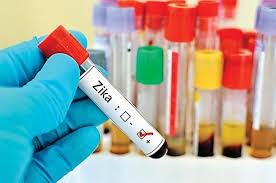Testing for Zika requires that a blood sample be refrigerated and moved to a laboratory, this delay diagnosis and treatment. The researchers tested blood samples taken from people infected with Zika virus and compared it to blood from people that do not have the virus.
Blood from Zika-infected patients tested positive while blood from Zika-negative controls did not. The assay produced no false-positive results.
Zika infection is either asymptomatic or mildly symptomatic; people infected with Zika don’t know they’re infected, many people don’t become sick after being bitten by an infected mosquito.
Testing is particularly important for pregnant women because Zika infection can cause congenital Zika syndrome, which contributes to several neurologic problems in the fetus or newborn infant.
Population screening is the effective way of diagnosing the diseases. Using of gold nanorods mounted on paper to detect Zika infection within a few minutes is faster and better than the current method.
The test relies on a protein made by Zika virus that causes an immune response in infected individuals. The protein is attached to tiny gold nanorods mounted on a piece of paper.
The paper then is completely covered with tiny, protective nanocrystals. The nanocrystals allow the diagnostic nanorods to be shipped and stored without refrigeration prior to use.
To use the test, a technician rinses the paper with slightly acidic water, removing the protective crystals and exposing the protein mounted on the nanorods. Then, a drop of the patient’s blood is applied. If the patient has come into contact with the virus, the blood will contain immunoglobulins that react with the protein.
Immunoglobulins persist in the blood for a few months, and when they come into contact with the gold nanorods, the nanorods undergo a slight color change that can be detected with a hand-held spectrophotometer. With this test, results and treatments will be immediate.
haleplushearty.blogspot.com



